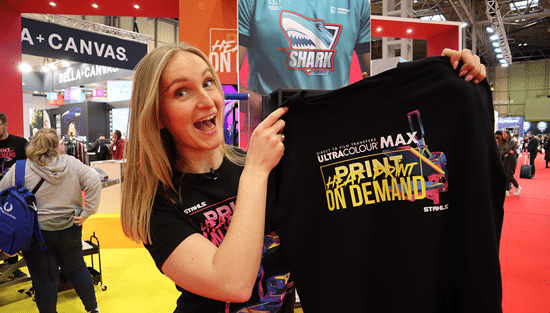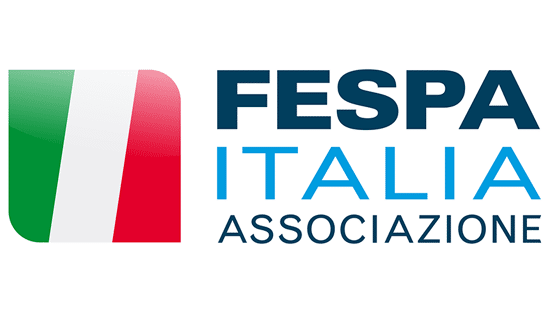EMAS or B Corp: what’s best for printers?

Digital, litho and foil-blocking UK printer Generation Press was EMAS-certified before making the switch to become a B Corp. Club FESPA Online asked owner and Managing Director Paul Hewitt about how to capture – and retain – this prestigious certification.
Why did you start looking at EMAS [the European Union’s Eco-Management and Audit Scheme]?
When I took over Generation Press from my dad, 24 years ago, I had two goals. One was to do the best work I could, and the second was to try and run the business as cleanly as possible. In the early days, we did a large job for a big company, which was using very heavy, hot laser-type machines and conventional inks were not reacting well to the heat. But we found vegetable-based inks and realised there was no compromise needed – they worked even better than conventional inks. The first time we really started to measure data and performance was in the run-up to the business becoming carbon-neutral in 2006. But I was never keen on offsetting carbon, because it was seemed like a ‘golden ticket’ to pay off your conscience. And the point was to reduce your carbon yourself.
So how did your measurements start out?
In the beginning, we simply started out measuring our energy: what we were using and where we were wasting it. We refined our printing, making our processes more efficient. We used better inks and pigments to reduce waste and power. Zoe, now our environmental leader, was a customer we had been working with for some time. She enjoyed working with us and had always said how much she liked Generation Press's ethos, and it was the closest she had seen to the early days of the Body Shop. It turned out she had worked closely with Anita Roddick for many years. We discussed working together more and more. I had mentioned I needed help to keep our environmental ambitions going. She said she would love to help, and so we agreed on a plan. She has done day a week with us ever since, always exploring sustainability goals and ways we can look to improve!
EMAS was throroughly audited, and this gave us a structure to build into all our processes and create an actionable agenda.
How onerous was the EMAS certification process?
Everything was paperwork in those days, and we used to have ring binders full of data. EMAS would ask: How much electricity did you use last year? How much will be used next year? Where does your waste go? Who collects the waste? So, you start measuring journeys from where the paper goes to its recycled output. EMAS gave us the tools to start measuring and asking the right questions of your business. So, it was onerous.
And then EMAS would send someone in for two days, who would verify all the relevant information. It was painful, but hugely satisfying to be able to do that. And after that first year, it gets easier because you know what kind of data you should be collecting. We got our first EMAS certification in 2013.
So why did you move over to B Corp certification?
EMAS said it was no longer able to audit us because as a UK business we were no longer in the European Union [after Brexit]. It was prepared to fly over an auditor from Germany, but we thought that seemed wrong on principle. B Corp seemed to be more far-reaching and more detailed – a complete auditing process, which included minimum wage and required more information on suppliers to ensure you are not outsourcing to companies in China, for example. Brand is important for our customers too, and B Corps include cutting-edge brands.
![]()
Generation Press’s B Corp credentials
B Corp is more of a complete audited process. We had to look at every corner of the business and the way we operate: from the way we treat the staff, to the way we look after our suppliers and we engage with our customers. But for us it’s about trying to be the best printer in the world, not boasting about how we are a green company. It’s a more complete, but clean and quite a cool way to go about it.
Will B Corp always be a minority pursuit?
Do customers believe in what we are trying to achieve? Because obviously there are extra costs that are reflected in our prices.
Therefore, it was important for us to tell our story, because if a customer comes back and says, yours was the highest quote, we can say, speak to this agency who has worked with us for years. And ask if our competitors are carbon neutral, or EMAS certified, or a B Corp. As a customer myself, I would rather pick a B Corp than a non-B Corp.
I don’t think you can be successful unless you have buy-in from everyone, including customers and staff. B Corp is aspirational, and some of the big blue-chip companies are using us more since we became B Corp, particularly for their high-end collateral.
By telling our story, we are more successful than just saying: “There's our price, match it to two other printers and then your procurements are done”
When it comes down to price as the governing factor, I try to get in front of the person that’s spending the money and tell them the difference they could make by moving to us. A competitor might be printing 24 hours, seven days a week with multiple shifts, and staff retention might be an issue. But the work that's coming out of our business is loved and cared for and arrives in that condition with the client. More often than not, customers learn that they want to be part of that process. And so by telling our story, we are more successful than just saying: “There's our price, match it to two other printers and then your procurements are done.”
You've got to genuinely believe in what you are doing to see it through. So if I see a B Corp business, with what I know now, I wouldn't hesitate to use it because I know what they've been through to achieve that status. Maybe 90% of people have never even heard of B Corp. But you can see it's growing. It has authority, it has strength.
Is there a lot of greenwashing going on in other firms?
A lack of benchmarking tells you a lot about the print industry. We’re often reliant on big printer, ink or chemical firms to give us the information on their products. When we were looking into ink, only one company gave us any data about their inks, so we had to test them ourselves. We tried different companies and asked them, what can you tell us about your vegetable-based inks? Do they use genetically modified soya? And many of them wouldn’t want to tell us, saying it was a trade secret. But the businesses that are genuine, and are truly sustainable, tend to be open and honest.
The larger companies worry me, and I think there is a lot of greenwashing going on, particularly in large format, because of the big conglomerates that are selling the ink and the machines. Their sales people might say their products are environmentally friendly but as soon as you put it on a substrate you can’t recycle it as the ink is bonded for life.
Do standards get tighter as time goes on? How do you continue to refine your business’s resilience and sustainability?
The processes are continually refined. For example, in 2015 we had to recycle 98.4% of everything we used. But then in 2020, that number went up to 99.4%. You constantly have to make incremental improvements. For example, we use solar power, but we’re desperately trying to find suitable batteries to store that energy to make use of the power generated at weekends and in the evenings. We're trying to refine our substrate choices, by getting to the bottom of paper mills. These improvements are probably the hardest to do, but it’s a case of always looking, understanding your business better and always trying to improve.
Become a FESPA member to continue reading
To read more and access exclusive content on the Club FESPA portal, please contact your Local Association. If you are not a current member, please enquire here. If there is no FESPA Association in your country, you can join FESPA Direct. Once you become a FESPA member, you can gain access to the Club FESPA Portal.
Topics
Recent news

How AI can benefit your data collection
Printers are collecting data about everything from costs to customers and inventory. But how can AI help you to make the most of that?

No minimum order: the growth of DTF decoration
Andy Rogers at Stahls’ UK and Europe, garment decoration firm based in Braintree, UK and Dillingen, Germany, on the cost and speed benefits of direct to film (DTF) printing.

The design democracy: AI, creativity and interior décor
We spoke to Matt Fletcher of John Mark Ltd and Cheryl O’Meara from the Print Pattern Archive about combining age-old techniques with artificial intelligence (AI) to create exciting new motifs for luxury wall coverings.
